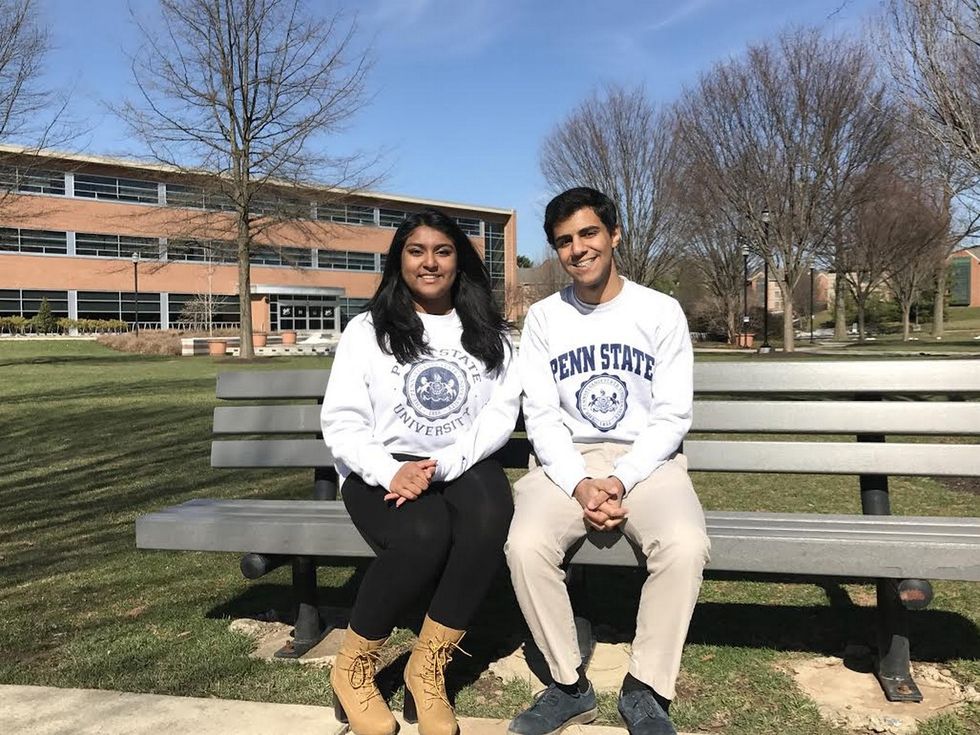Proudly presenting the third article in my "A Leader's Point of View". Series article, where I interview student leaders. If you have not read the previous two to gain more insight.
Here is a little about John Saad:
Give me a quick introduction about yourself and your previous leadership experience
I moved to the United States from Egypt in 2013. I am currently a sophomore at Penn State Harrisburg. I am majoring in Computer Science and Political Science. I am intending on finishing a five years program to gain a Master’s in Computer Science. I am currently the Vice President of the Student Government Association. I have been a Senator in our SGA since my second semester. I am a current and re-elected member of the Commonwealth Fee Board which oversees Student Fees across the Penn State Commonwealth Campuses. I have also been the logistics director and a committee chair for Penn State Harrisburg Model United Nations Conference for more than 300 students.
What does being a leader mean to you?
Being able to recognize the strengths and weaknesses of each individual in the group and utilizing them to the best of the group’s interest. It is impossible to define what leadership means in a few lines, but the most important is to remember that real leadership means focusing on being a positive leader rather than just a good leader. a positive leader is someone who uses their leadership to the betterment of others and to maintain morals and integrity of the organizations and the individuals. However, just being a good leader is nothing more than having followers that will likely do what you say, no matter the integrity or the morals violated by doing the actions.
Why does being a student leader matter?
Each student makes a great leader, in the sense that a good leader is also a natural follower. Throughout the period I have took on different student leadership roles, I have been able to prioritize service and others above self. If each of us were only to focus on ourselves, this world would not survive for a long time. Being a student leader, I get to observe other students I work with grow and expand their horizons. It is very enriching to observe and knowing that the effort put into leading a group will have a lasting positive impact on their lives. If student leaders did not exist, Clubs and organizations would lack efficiency and productivity. There would be none to represent the students’ voice through organizations such as the student government. While each individual contributes in some way, without student leaders, different organizations would cease to exist.
What motivates you to be a student leader?
The million dollars question. Identifying the motives is one of the most important, yet most difficult part of being a student leader. Most student leaders started being involved and then years later realized what motivates them. For me, I believe it is being able to influence others in a positive way and serving in the best way possible.
Do you have a favorite leadership quote?
While I have many that I enjoy, my favorite is “Tell me and I forget. Teach me and I remember. Involve me and I learn.” By Benjamin Franklin. As I said earlier, a leader’s successes is defined by what the person being led gains. I highly believe that real leadership does not only include telling or teaching, but involving.
Do you have anyone who mentors/inspires you to be a better leader? (Student or adult)
Certainly. Each individual needs a mentor and someone’s experiences to follow on, yet a leader needs many. Most of my inspirations comes from my church leaders. As I was growing up, they guided me and led by example.
What is the most difficult challenge you have faced as a student leader? How did you resolve this issue? What did you learn from this experience?
Leading a team and having to work out the different personal conflicts for the sake of the work relations. Getting an individual to separate a personal relation from a working relation is one of the most challenging tasks I have ever experienced. From my experience, this requires time and numerous attempts to discuss and understand the reasons behind the conflicts. It taught me that people’s personal conflicts would influence the work dynamic more than I ever anticipated possible.
Thank you John for all of your leadership and dedication. Wishing you all the best with school, leadership, and the rest!
















